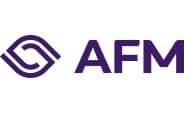AFM: have a dialogue with the auditor about materiality
The materiality in the auditor’s report of Dutch Public Interest Entities (PIEs) can provide important information to investors, analysts, and financiers which they can use in taking economic decisions. The Dutch Authority for the Financial Markets (AFM) and the Committee of European Auditing Oversight Bodies (CEAOB) explored how materiality is applied by the Big Four audit firms in the statutory audits of PIEs. These insights offer starting points for a dialogue between companies’ management, supervisory boards and audit committees, users of financial statements and statutory auditors about the materiality applied in audits.
Materiality is relevant to economic decisions
Information is material if its omission from or misstatement in the financial statements could influence the economic decisions of users taken on the basis of the financial statements. When auditing the financial statements of PIE, the statutory auditor estimates what is material to users. Under Dutch Law, statutory auditors must disclose the materiality they applied in the audit and how they determined this materiality in the auditor’s report, as well as quantitative and qualitative aspects of the materiality. In this way, the users get information about the applied materiality such as information about the level of detail of the audit procedures performed and the amounts and nature of corrected misstatements.
Materiality includes both quantitative and qualitative aspects
As every statutory audit has specific characteristics, the statutory auditor’s professional judgement plays a key role in the determination of materiality. The statutory auditor determines the amount, but also takes qualitative aspects into account. Therefore, a relatively small item such as board remuneration can still be material.
Ask questions at the General Meeting of Shareholders
The survey found a number of differences between the Big Four when it comes their methodology for determining materiality and the application of that methodology in statutory audits. To this end, users can ask questions to the statutory auditor. For example, users can ask the statutory auditor how the materiality was determined and what qualitative aspects were considered in this respect. They could do this at the General Meeting of Shareholders. The report provides examples of questions than can facilitate the dialogue between users, the audit committee, the company's management, and the statutory auditor.
Findings based on 40 statutory audits at PIEs
The CEAOB is the framework for European cooperation in the supervision of audit firms. As a member of the CEAOB, the AFM conducted the survey among the Big Four in the Netherlands in 2021 and gather information about the application of the methodology in 40 statutory audits of financial statements of PIEs. The AFM expresses no opinion on compliance with standards regarding materiality, nor on the quality of the relevant statutory audits.
Contact for this article

Would you like to receive the latest news from AFM?
Subscribe to our newsletter, we will keep you up-to-date.